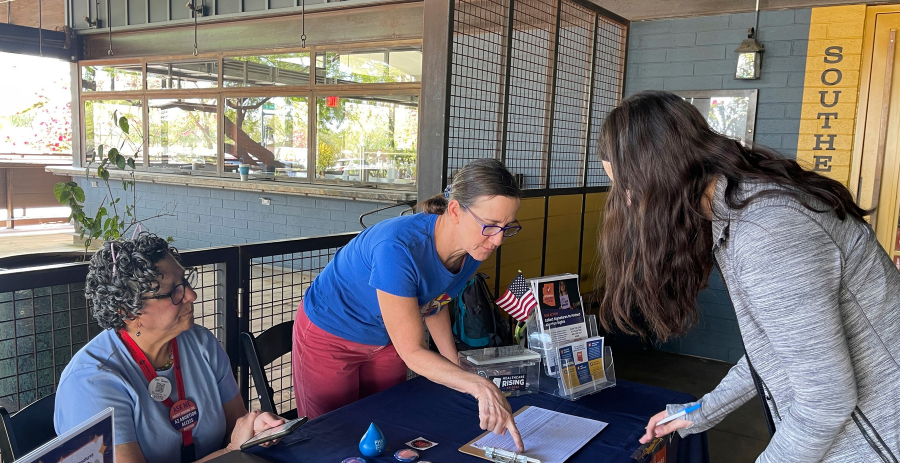2024 Election News
Prop. 134 Secures $400k+ Support, Opponent Claims It Threatens Future Initiatives

A significant fundraising campaign is underway for a ballot measure aimed at reforming Arizona’s voter initiative process.
Proposition 134, known as the Distribution Requirement for Initiatives Amendment, has raised over $400,000 according to recent third-quarter campaign finance reports. This amount places it among the top-funded measures in Arizona this election cycle.
Only two ballot measures have attracted more financial backing: the Arizona Abortion Access Act, which has garnered over $700,000, and Proposition 312, involving property tax refunds, which stands at $500,000.
If approved, Proposition 134 would reform the initiative process by mandating that signature requirements be met in all 30 legislative districts across Arizona, rather than just meeting a statewide threshold. Currently, collecting signatures for a voter initiative requires 10% of the votes cast for governor in the previous general election, while constitutional amendments necessitate 15%.
Financial support for Proposition 134 largely comes from the political action committee Make Every Voice Heard, contributing $210,000 on September 26 and $197,000 on August 28. This significant funding underscores the committee’s intention to ensure a more equitable signature collection process, as per Chairman Philip Bashaw.
Bashaw argues that the measure brings back the fundamental purpose of the citizen initiative process, enabling broader participation outside of Maricopa County. He believes this change would enhance public involvement in ballot propositions.
In stark contrast, opposition to the measure has raised a mere $20,000, primarily from various local businesses concerned about the impact of the proposed changes.
One vocal opponent is the Arizona Public Health Association. They contend that Proposition 134 would complicate the process of getting public health initiatives on the ballot. Executive Director Will Humble highlighted past successful voter initiatives like the Smoke-Free Arizona Act as pivotal changes that emerged from grassroots efforts.
Humble has labeled Prop. 134 an “existential threat” to future voter initiatives, suggesting it could severely restrict the ability to place initiatives on ballots if enacted.
Looking across the nation, 24 states allow for citizen initiatives, with some having their own geographic requirements. However, many do not impose as rigorous standards as Proposition 134’s proposals.
For instance, Massachusetts requires only 25% of signatures from any single county, while Michigan limits the same to 20% from a congressional district. In contrast, Colorado and Utah impose varying percentage requirements based on electoral participation within their legislative districts.
Critics further argue that such a change could enable a single legislative district to disproportionately influence statewide initiatives. However, supporters like Danny Seiden, CEO of the Arizona Chamber of Commerce and Industry, rebuff these claims, asserting that the distribution of residents across districts makes such a scenario unlikely.
Seiden expressed that if a proposal were to displease 200,000 residents necessary to block it, it may not deserve a place on the ballot. This measure, with its contentious implications and financial backing, will remain a focal point in Arizona’s upcoming elections.


















